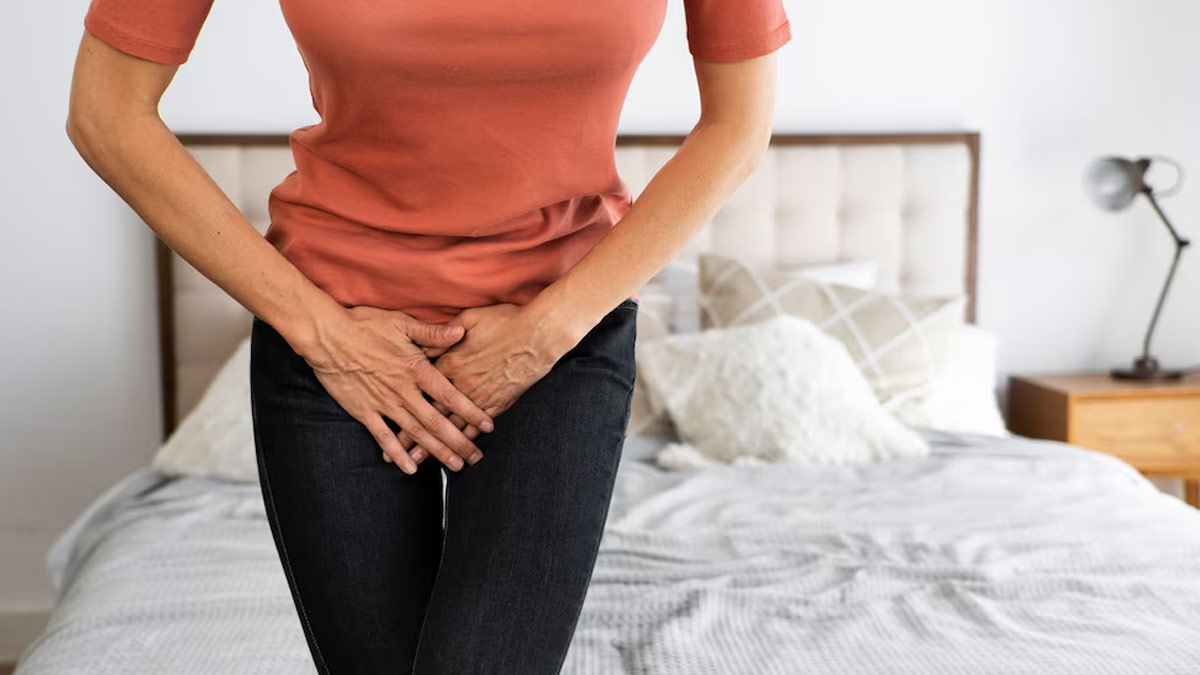
Many women experience a range of physical and emotional changes during their menstrual cycle, but one often overlooked issue is its impact on bladder control. Hormonal fluctuations can lead to increased urgency, sensitivity, or even leakage, a condition known as menstrual-related urinary incontinence. While it can be distressing, understanding the causes and symptoms can empower you to manage these changes effectively, making that time of the month easier to navigate. We spoke to our expert Dr Adittya K Sharma, Senior Director and Head, Urology, Andrology, Kidney Transplant and Robotic Uro-Oncology, Max Super Specialty Hospital Gomti Nagar Lucknow, who explained how your period might affect your bladder and what steps you can take to regain control.
Table of Content:-
“Many women experience changes in bladder control during their menstrual cycle due to hormonal fluctuations, which can impact the bladder and surrounding pelvic muscles. This condition is commonly referred to as menstrual-related urinary incontinence,” explained Dr Sharma.
Causes Of Urinary Incontinence During Periods

- Hormonal Fluctuations: During menstruation, oestrogen and progesterone levels drop. These hormones play a role in maintaining the strength and function of the pelvic floor muscles. The sudden decrease can weaken the support these muscles provide to the bladder, leading to increased urgency or leakage.
- Prostaglandin Production: Prostaglandins, hormone-like substances, are produced during periods to help the uterus contract and shed its lining. High levels of prostaglandins can affect smooth muscles, including those in the bladder, leading to increased sensitivity and a higher urge to urinate.
- Water Retention: Some women experience bloating or water retention due to hormonal shifts. This can place additional pressure on the bladder, causing frequent urination.
- Pelvic Congestion: The pelvic region experiences increased blood flow during menstruation, which can cause the tissues around the bladder to swell, contributing to bladder discomfort or urgency.
Also Read: Spotting Vs Periods: Expert Explains The Difference Between The Two
Symptoms Of Urinary Incontinence During Periods

- Urinary Urgency: A sudden, intense urge to urinate more frequently than usual.
- Urinary Incontinence: In some cases, women may experience leakage or a loss of bladder control, especially when sneezing, coughing, or during physical activity.
- Pelvic Pressure: A feeling of fullness or pressure in the pelvic region, which may increase the urge to urinate.
- Bladder Sensitivity: Heightened sensitivity or discomfort when the bladder is full, even if it isn’t full.
Management Measures

- Pelvic Floor Exercises (Kegels): Strengthening the pelvic floor muscles can help improve bladder control. Performing Kegel exercises regularly helps reduce leakage and improve overall bladder stability. According to a 2020 study, pelvic floor exercises play a crucial role in alleviating the severity of urinary incontinence associated with the menstrual cycle in nulliparous females aged 18 to 25. These exercises are particularly beneficial for managing stress urinary incontinence compared to urge incontinence.
- Hydration: While it may seem counterintuitive, drinking plenty of water can prevent bladder irritation. Dehydration can concentrate urine, leading to irritation, which may exacerbate urgency.
- Limit Caffeine and Diuretics: Caffeine and diuretic beverages (like coffee, tea, and soda) can irritate the bladder and increase urination frequency. Reducing intake, especially during your period, can alleviate symptoms.
- Bladder Training: Structured bladder training exercises can help retrain the bladder to increase the time between bathroom visits. This can help manage symptoms of urinary urgency.
- Dietary Adjustments: Some foods and drinks, like spicy foods, alcohol, or artificial sweeteners, can irritate the bladder. Avoiding bladder irritants can help improve symptoms.
- Consultation with a Healthcare Provider: If symptoms are severe or persistent, consulting a doctor or urologist is recommended. They can check for underlying conditions like interstitial cystitis or pelvic floor dysfunction, which may be contributing to bladder issues.
- Medication: In some cases, doctors may prescribe medications that relax the bladder muscles or manage fluid retention to help reduce urinary urgency and frequency during menstruation.
[Disclaimer: This article contains information provided by an expert and is for informational purposes only. Hence, we advise you to consult your own professional if you are dealing with any health issues to avoid complications.]
Also watch this video
How we keep this article up to date:
We work with experts and keep a close eye on the latest in health and wellness. Whenever there is a new research or helpful information, we update our articles with accurate and useful advice.
Current Version